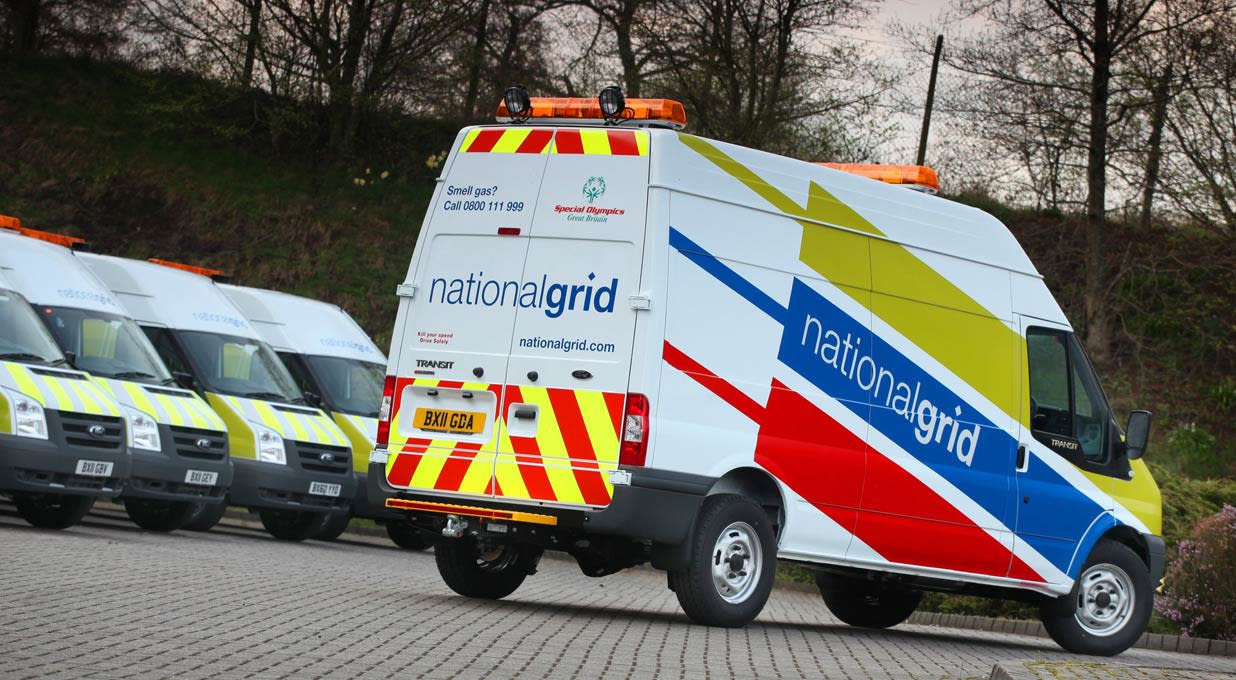National Grid’s full-year revenue fell 8% to £19.9bn. Underlying operating profits rose 6% to £4.8bn, ignoring the impact of exchange rates. This was largely driven by higher allowed revenues in the UK Transmission business and higher rates in the US.
Free cash flow fell from £105mn to £87mn. Net debt increased from £41.0bn to 43.6bn.
National Grid plans to invest around £60bn in upgrading its energy infrastructure over the five years ending March 2029. To fund this, a rights issue has been announced where investors can buy 7 new shares for every 24 they already own, at a discount of roughly a third. Issuing these new equity shares is expected to raise around £6.8bn of cash.
A final dividend of 39.12p per share was announced, taking the full-year total to 58.52p, up 6%.
The shares fell 7.4% following the announcement.
Our view
National Grid’s full-year results saw it announce a mammoth investment plan alongside a £6.8bn equity raise. This raise is bigger and sooner than markets were expecting, which combined with rebasing the 2024 dividend at a lower level, caused the valuation to take a tumble on the day.
With the energy landscape changing fast, the group’s attempting to plant itself at the centre of the electric revolution. Investment in energy infrastructure is set to rise significantly to around £60bn over the five years ending March 2029, nearly double the investment over the past five years.
Alongside this, the portfolio is being streamlined, with a couple of assets that don’t fit the new strategy set to be sold off. This will free up extra cash to plough back into other areas of the business while also allowing management to focus on building out its energy infrastructure.
The dividend is also being rebased lower to help fund these growth plans and shore up the balance sheet. We have no concerns about balance sheet health, but this all points towards more of a focus on long-term growth rather than short-term returns, which we’re supportive of.
In return for investing those billions to maintain and upgrade its infrastructure, regulators allow National Grid to earn a reasonable profit, with the potential to earn more if it exceeds targets. That translates into predictable revenues, low borrowing costs, and relatively resilient growth.
The regulatory environment can be a double-edged sword, though, as regulators have the final say over National Grid's profit potential. The ongoing cost-of-living pressures and the recent surge in energy costs mean consumers are already struggling to pay their bills. That's put a lot of pressure on regulators to start slicing into utilities' profits which could potentially put brakes on future growth. Remember, because of regulation, National Grid's future isn't entirely under its own control.
Given the group's significant investment in this current high-rate environment, we've been keeping a close eye on the cost of funding it all. Finance costs were broadly flat year-on-year, and current high levels of inflation are actually a net benefit for National Grid, and should more than offset the negative impact of higher interest rates.
We commend National Grid’s willingness to pounce on shifting energy trends. The sheer scale of the investment plans brings with it increased execution risk, but should management pull it off, investors will likely be rewarded for their patience. As always though, nothing is guaranteed and there’s likely to be some volatility along the way as the group executes its strategy.
National Grid key facts
All ratios are sourced from Refinitiv, based on previous day’s closing values. Please remember yields are variable and not a reliable indicator of future income. Keep in mind key figures shouldn’t be looked at on their own – it’s important to understand the big picture.
This article is not advice or a recommendation to buy, sell or hold any investment.No view is given on the present or future value or price of any investment, and investors should form their own view on any proposed investment.This article has not been prepared in accordance with legal requirements designed to promote the independence of investment research and is considered a marketing communication.Non - independent research is not subject to FCA rules prohibiting dealing ahead of research, however HL has put controls in place(including dealing restrictions, physical and information barriers) to manage potential conflicts of interest presented by such dealing.Please see our full non - independent research disclosure for more information.


